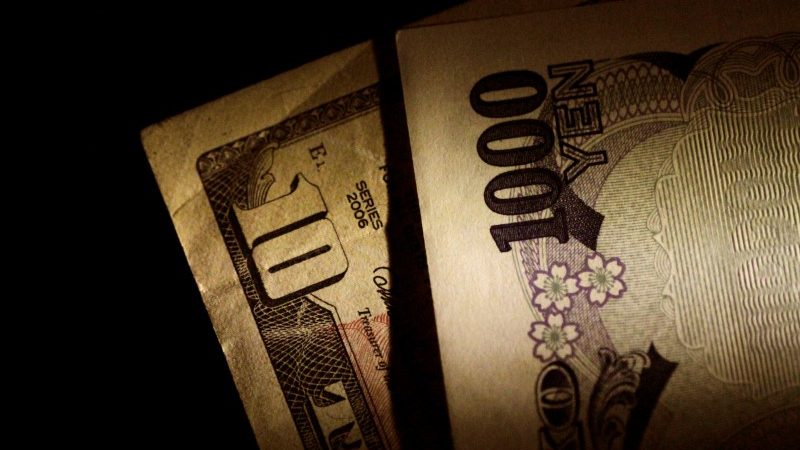
Dollar climbs as North Korean tensions ease
By Patrick Graham
LONDON (Reuters) – Gains against the yen and the Swiss franc led a broad rise in the U.S. dollar on Tuesday, helped by an easing of the tensions around North Korea that drove capital towards Switzerland and Japan last week.
The yen and the franc had both surged as Washington and Pyongyang ramped up military threats following the imposition of new sanctions on the Koreans through the United Nations 10 days ago.
However, a North Korean state media report on Tuesday that leader Kim Jong Un had delayed a decision on firing missiles towards the U.S. Pacific territory of Guam was taken by markets as another sign that the threats were rhetorical.
Currency market strategists also point to a general recovery by the dollar over the past fortnight after its worst four months since 2011 against the euro and the basket of currencies used to measure its broader strength.
“Selling dollars isn’t as easy now as it was in June because of positioning,” said Stephen Gallo, head of European FX strategy with Bank of Montreal in London.
“The market is short dollars versus G10 (currencies), probably now short versus emerging markets and, I think, short versus China. So if you sold the dollar at the start of June, why wouldn’t you take some money off the table now?”
Gallo pointed to a raft of political and economic event risks – ranging from German elections to the expected start of the U.S. Federal Reserve’s balance sheet wind-down – that move into view in September as reasons for investors to consolidate on anti-dollar plays.
The dollar index rose 0.4 percent in morning trade in Europe and the U.S. currency was similarly higher against the euro at $1.1738.
It gained 0.7 percent to 110.42 yen, taking it back to levels last seen before U.S. President Donald Trump promised last week that North Korea would be met with “fire and fury” it if threatened the United States.
Poorer than expected German growth numbers also played into moves early in European time, with Europe’s biggest economy growing 0.6 percent on the quarter compared to expectations of 0.7 percent in a Reuters poll.
“The dollar could be making a permanent comeback,” said City Index’s Kathleen Brooks in a morning note.
“From a technical perspective EUR/USD looks strong, however (the rise yesterday) highlights the impact that central bank speak is likely to have on the euro as we lead up to the all-important Jackson Hole conference on 24-26th August.”


